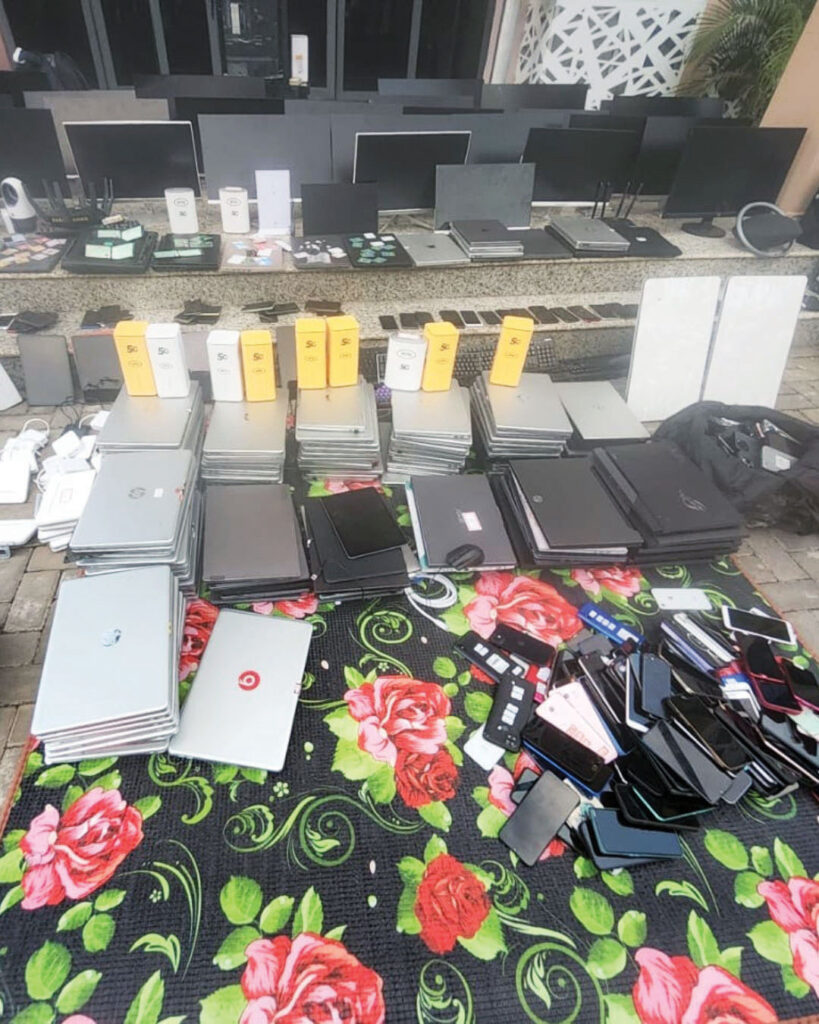Interpol arrested 306 people and seized 1,842 electronic devices across seven African nations in an international operation that targeted perpetrators of cyberattacks and scams.
The international police organization worked from November 2024 to February 2025 to target banking, investment and messaging app scams. Operation Red Card sought to disrupt and dismantle cross-border criminal networks that harmed more than 5,000 individuals and businesses.
Authorities in Benin, Côte d’Ivoire, Nigeria, Rwanda, South Africa, Togo and Zambia took part in the operation. Interpol worked through its African Joint Operation against Cybercrime.
Authorities in Nigeria arrested 130 suspects, including 113 foreigners, who were accused of perpetrating cyber scams such as online casino and investment frauds. Authorities say they converted proceeds to digital assets and were recruited from different countries to run scams in multiple languages. In all, the Nigeria operation seized 26 vehicles, 16 homes, 39 parcels of land and 685 devices.
Rwandan authorities arrested 45 suspected members of a criminal network in social engineering scams that defrauded victims of more than $305,000 in 2024. Authorities say they posed as telecommunications employees and claimed fake “jackpot” wins to extract sensitive information and gain access to mobile banking accounts. Authorities recovered $103,043 and seized 292 devices.
In South Africa, authorities arrested 40 people and seized more than 1,000 SIM cards and 53 desktop computers and towers. The SIM box fraud scheme reroutes international calls as local ones in large-scale SMS message phishing attacks.
In Zambia, officers apprehended 14 suspected members of a criminal syndicate that hacked phones by sending a message containing a malicious link that installed malware when clicked. This gave hackers access to banking apps and the ability to spread the scam.
“The success of Operation Red Card demonstrates the power of international cooperation in combating cybercrime, which knows no borders and can have devastating effects on individuals and communities,” Neal Jetton, Interpol’s director of the Cybercrime Directorate, said in a news release.

